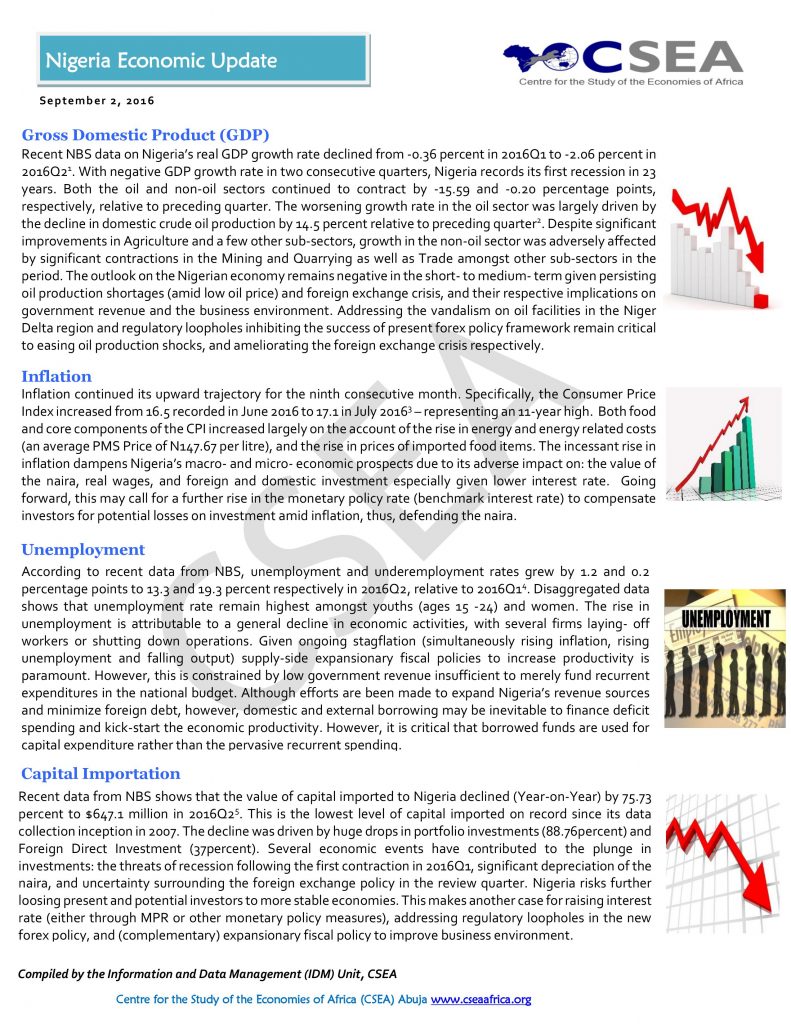Macroeconomic Report & Economic Updates

September 8, 2016
Nigeria Economic Update (Issue 38)
Recent
NBS data on Nigerias real GDP growth rate declined from -0.36 percent in
2016Q1 to -2.06 percent in 2016Q2. With negative GDP growth rate in
two consecutive quarters, Nigeria records its first recession in 23 years. Both
the oil and non-oil sectors continued to contract by -15.59 and -0.20
percentage points, respectively, relative to preceding quarter. The worsening
growth rate in the oil sector was largely driven by the decline in domestic crude
oil production by 14.5 percent relative to preceding quarter
Related
Nigeria Economic Update (Issue 3)
The
Nigeria stock market indices; All Share Index (ASI) and Market Capitalization
declined by 2.4 percent to close at 26537.36 points and N9.12 trillion
respectively at the end of the trade session this week8 The decline
in the indices, which is attributed to the low subscription for stocks in the
market, led to the partnership between Security and Exchange Commission (SEC)
and Debt Management Office (DMO) to salvage the financial system.
Public Debt-to-GDP Ratio
Public Debt-to-GDP Ratio: The ratio of Nigerias cumulative government debt to national GDP has maintained an upward trend indicating the countrys declining economic productivity and ability to repay
Nigeria Economic Update (Issue 46)
The
Executive council recently approved a three-year external borrowing plan
(2016-2018) which specifies external borrowing of approximately $30 billion (to
be sourced mostly from MDBs) for infrastructure development.
Although, the plan is yet to be approved by the Senate, the planned concessional
loans for infrastructural development would imply inflows of foreign exchange which
could help moderate the exchange rate volatilities in the near term, and offer
potential improvement in business productivity and job creation.
